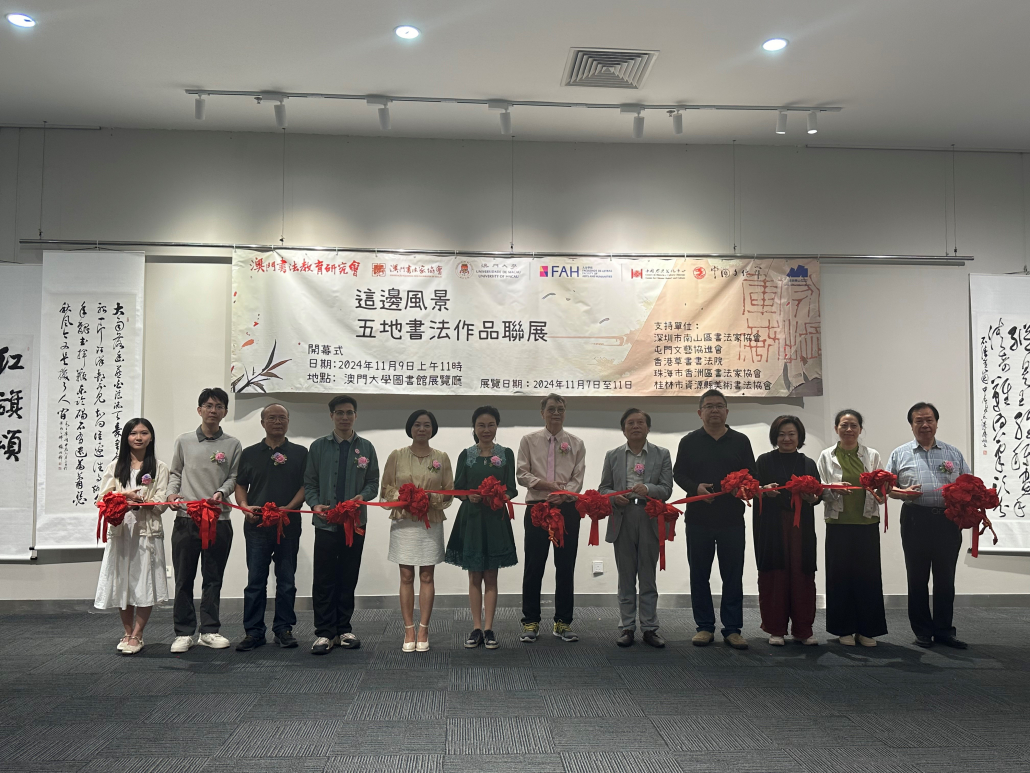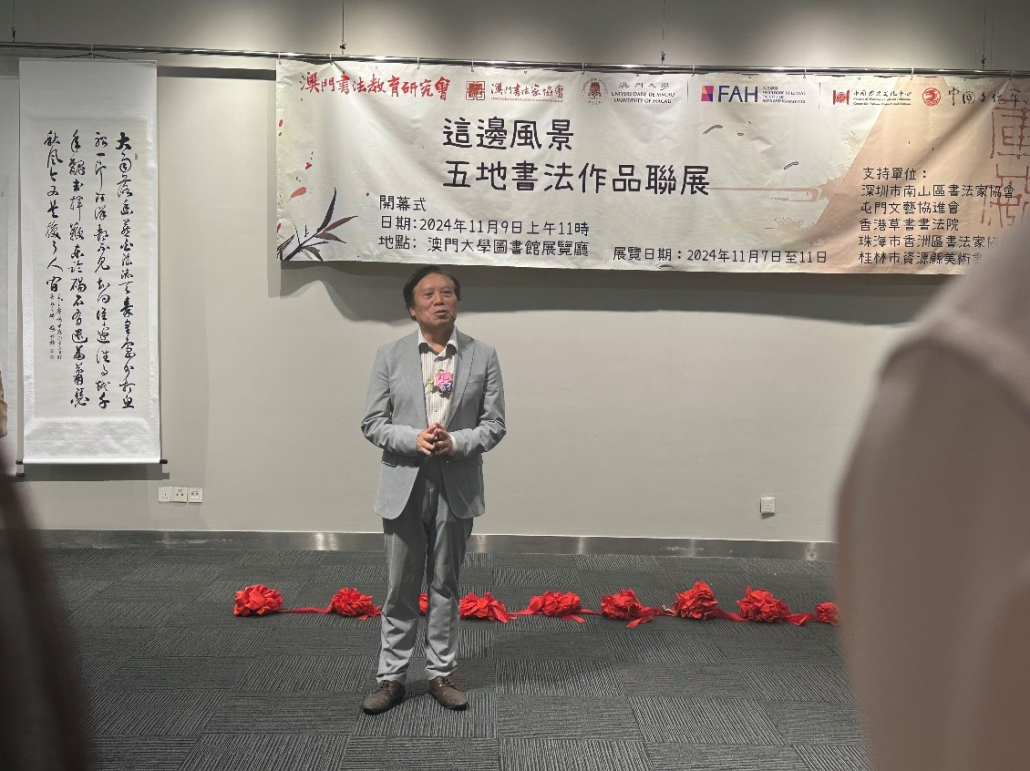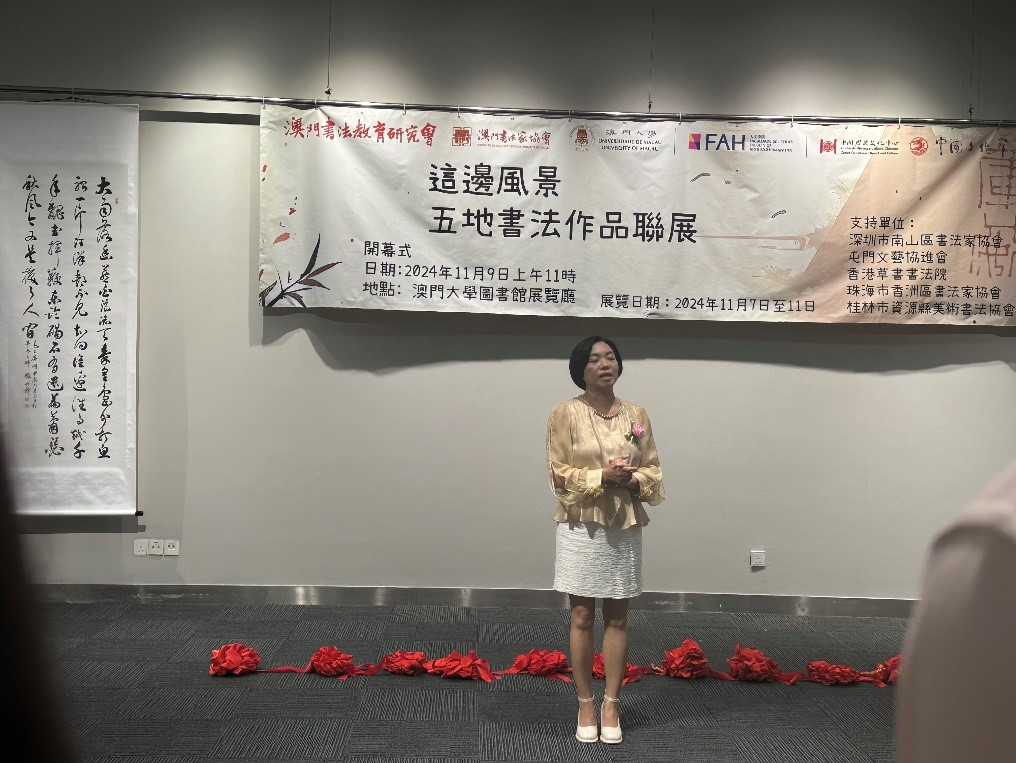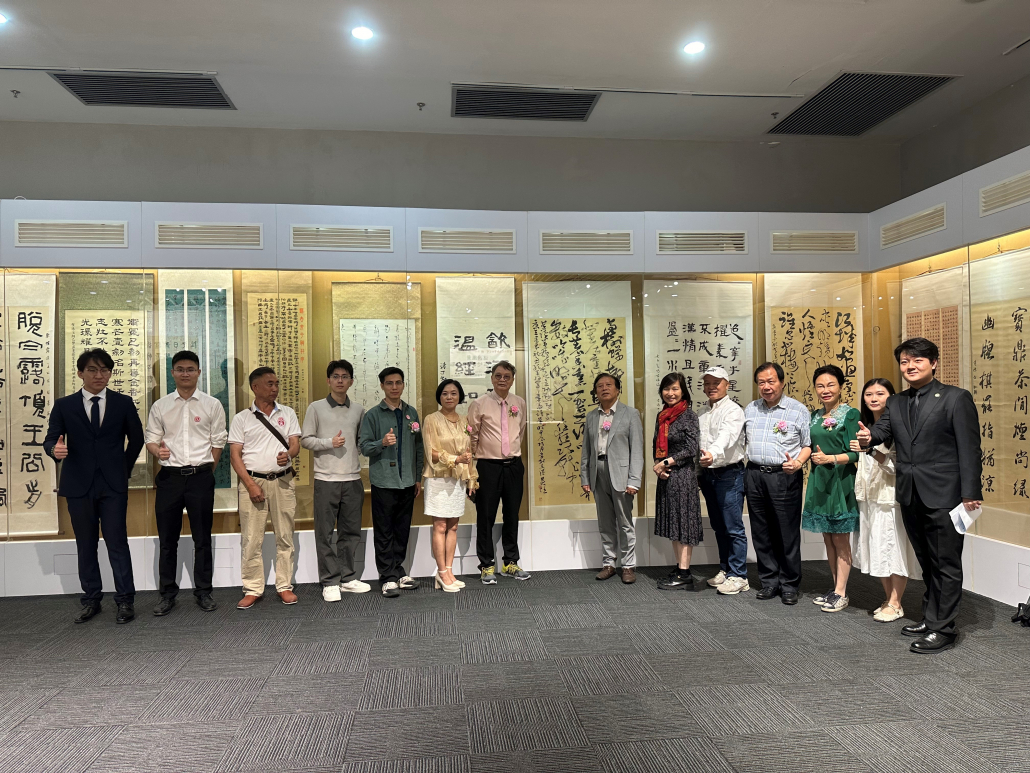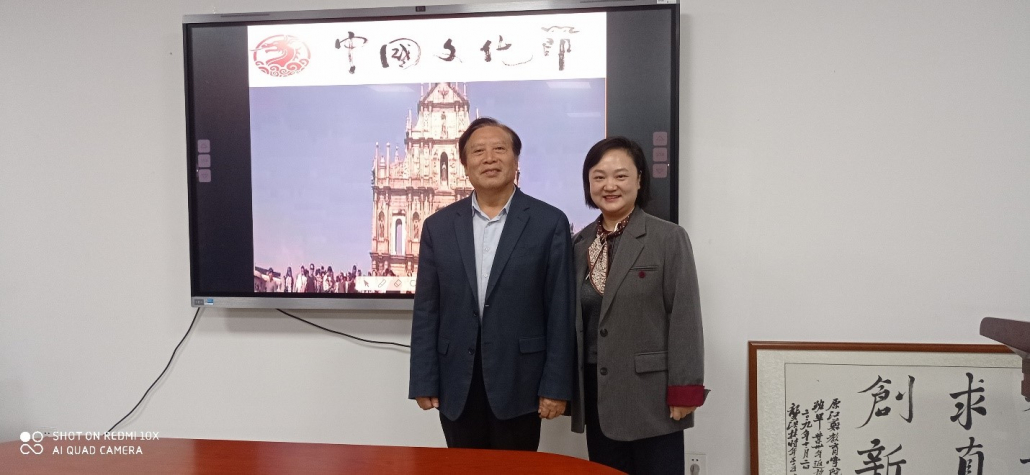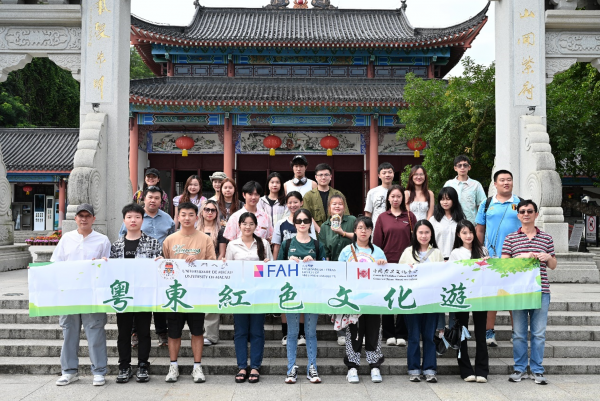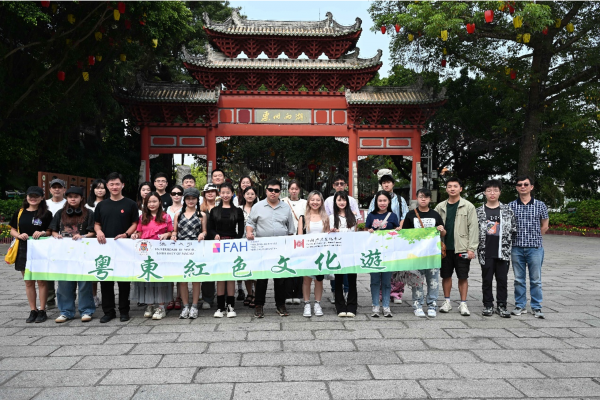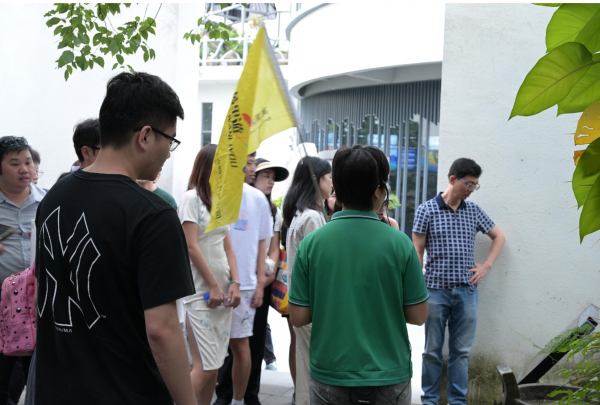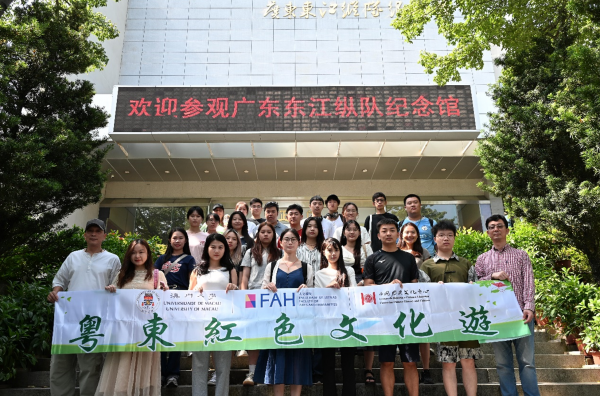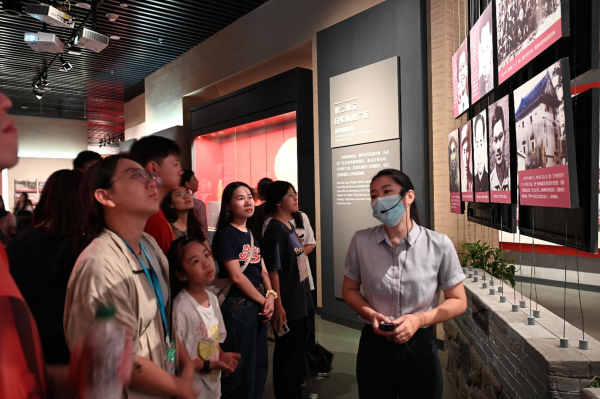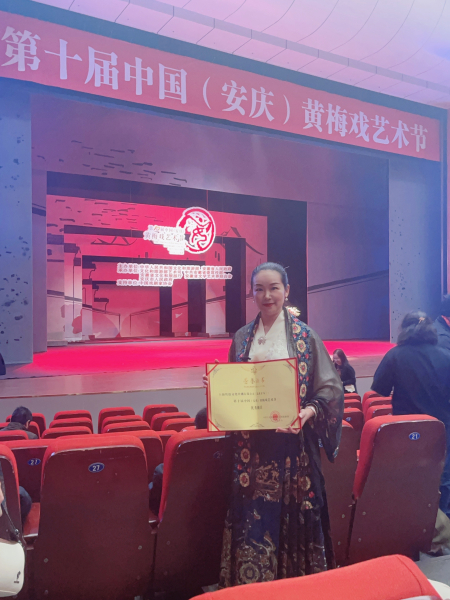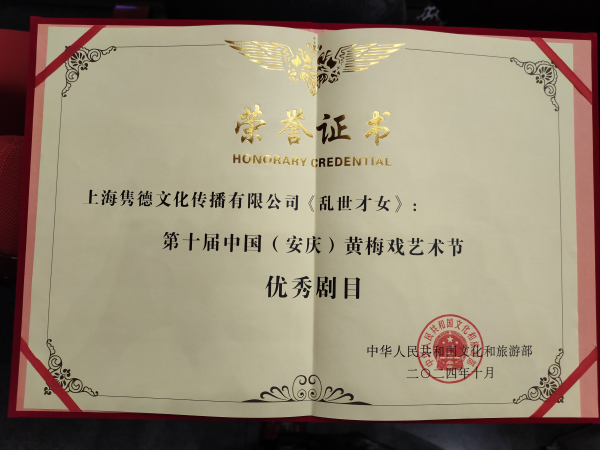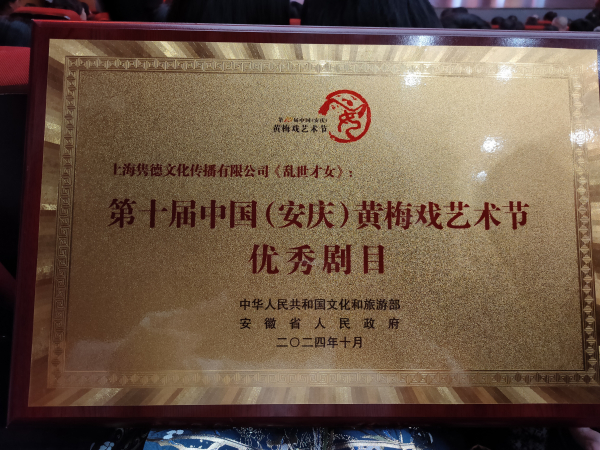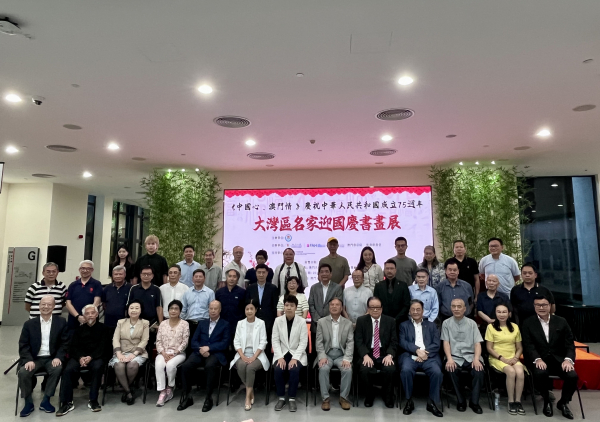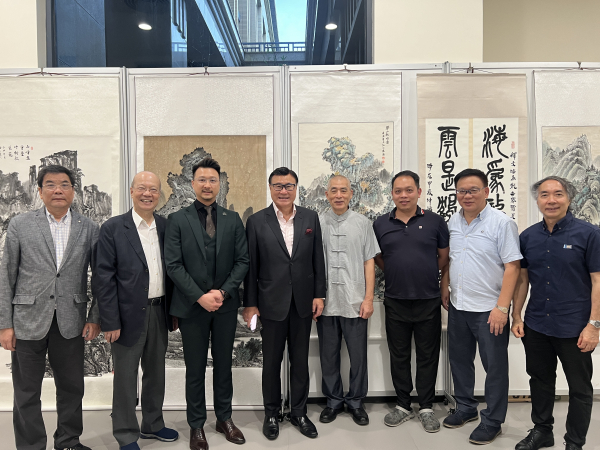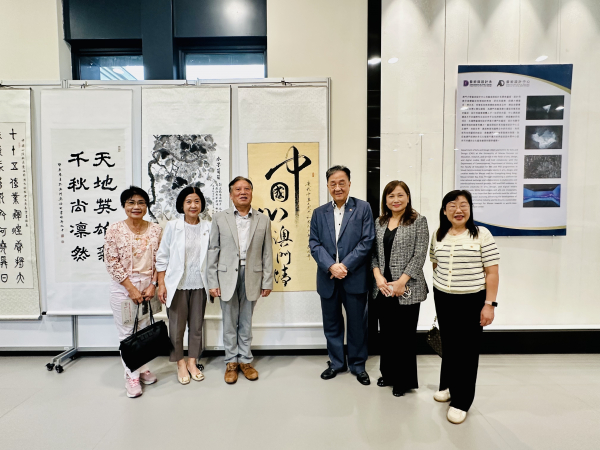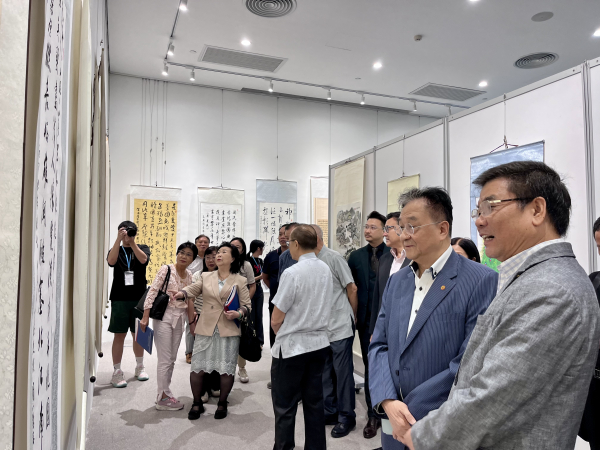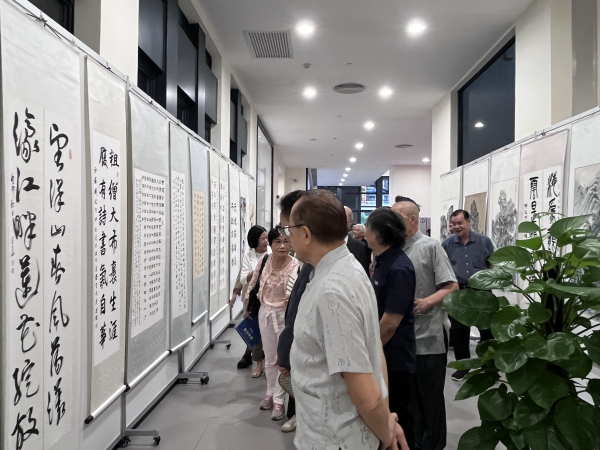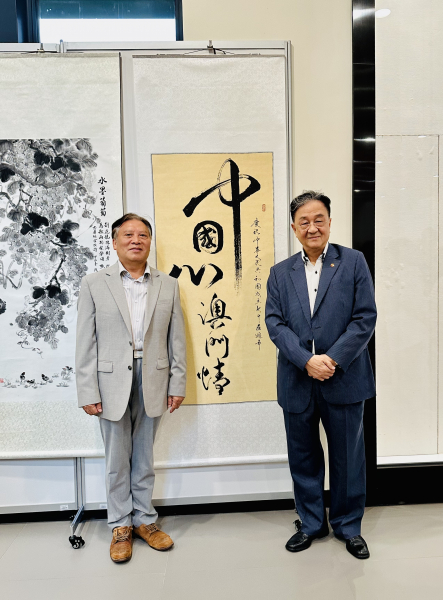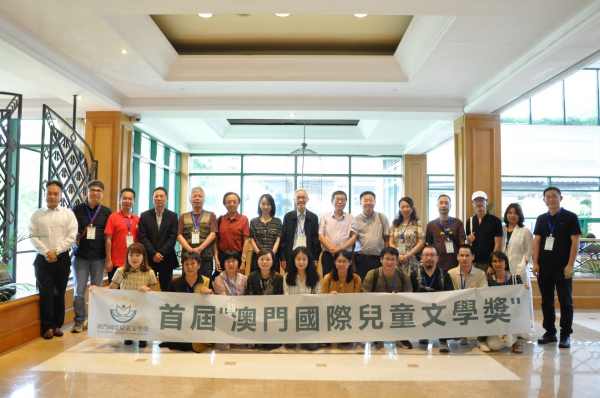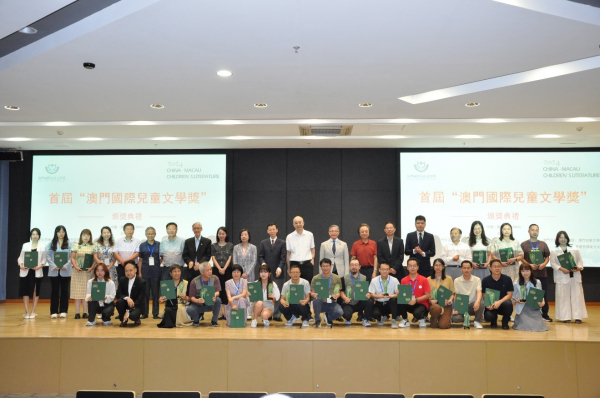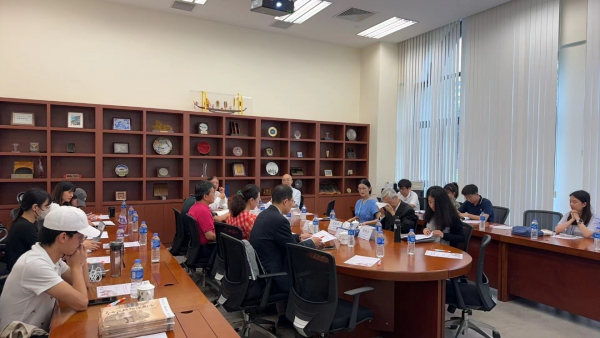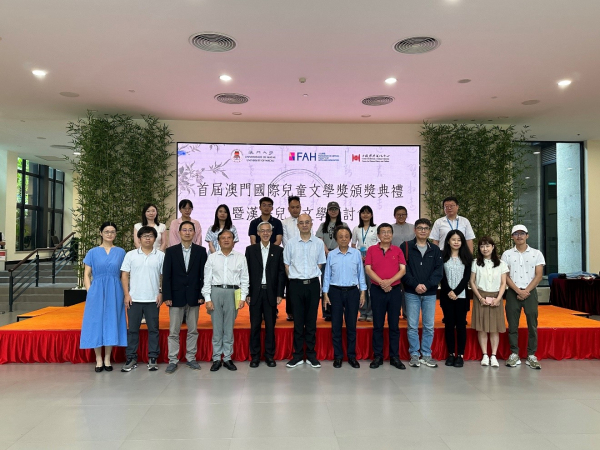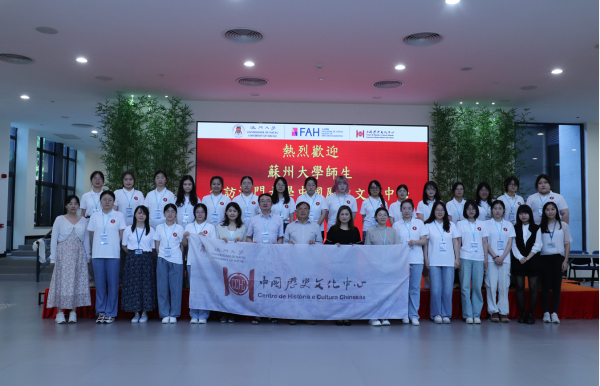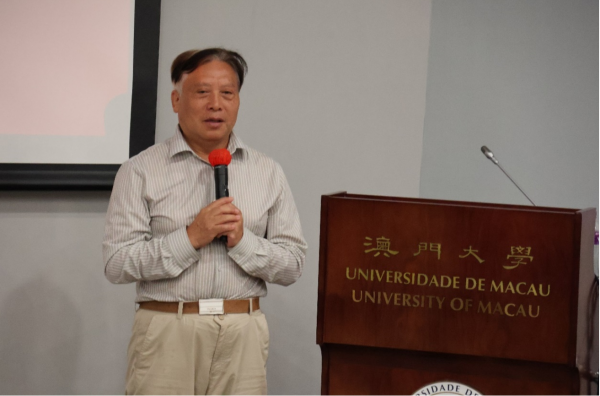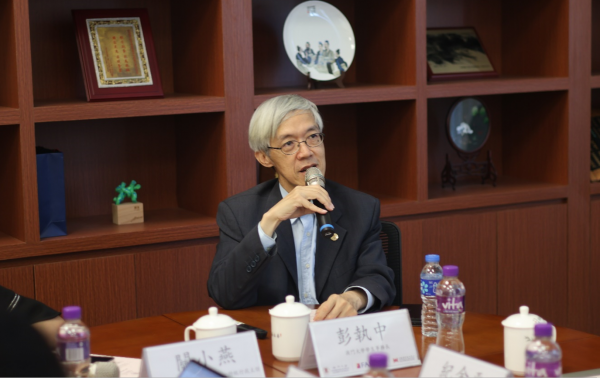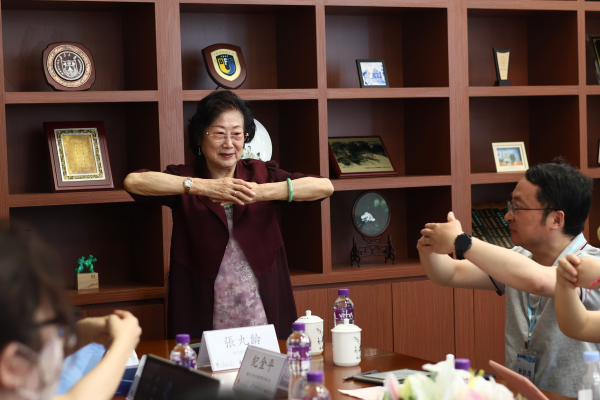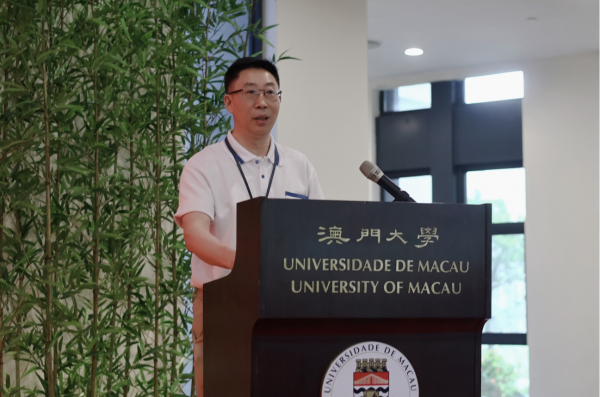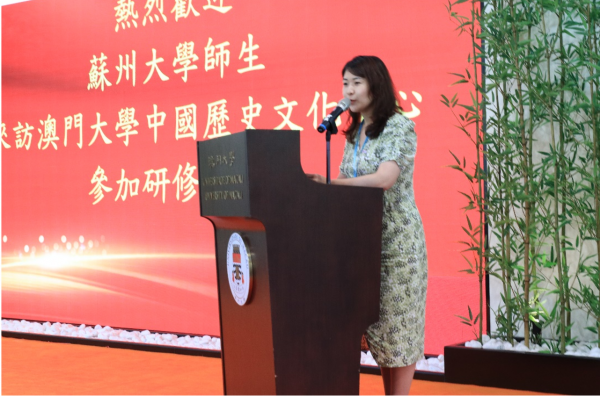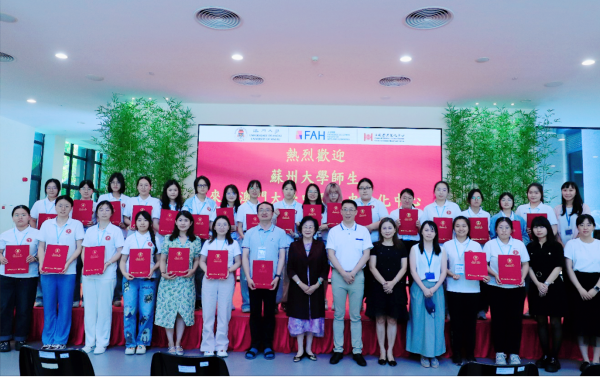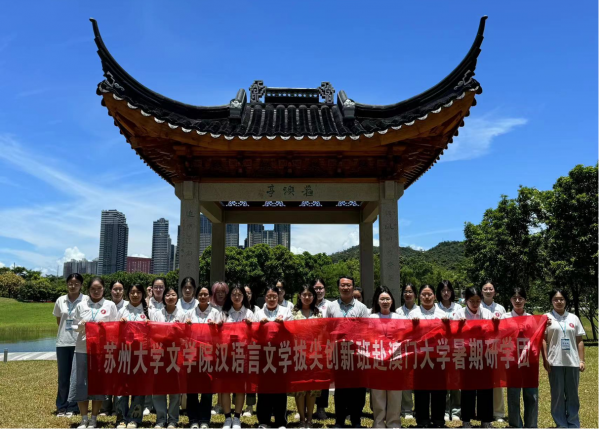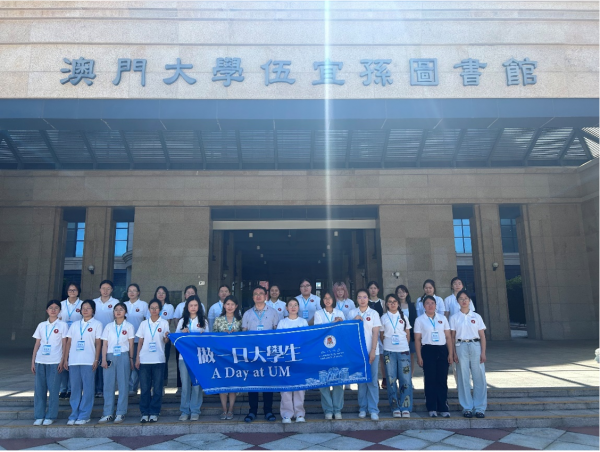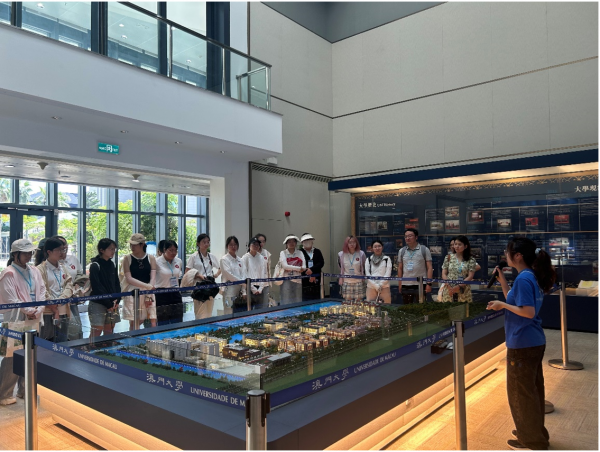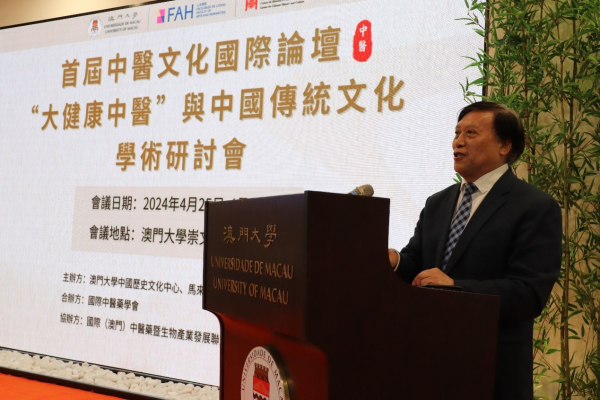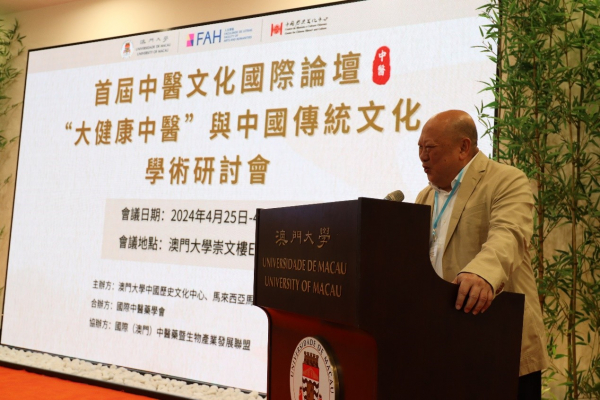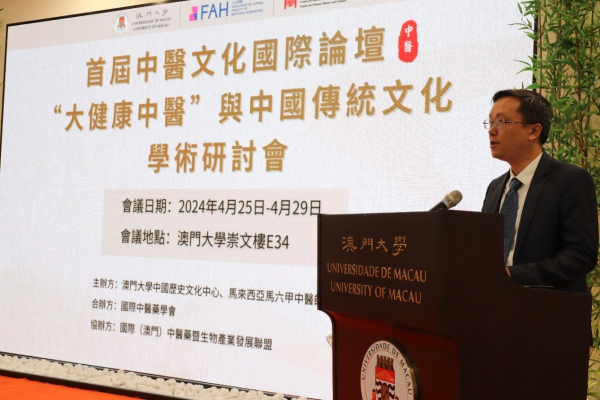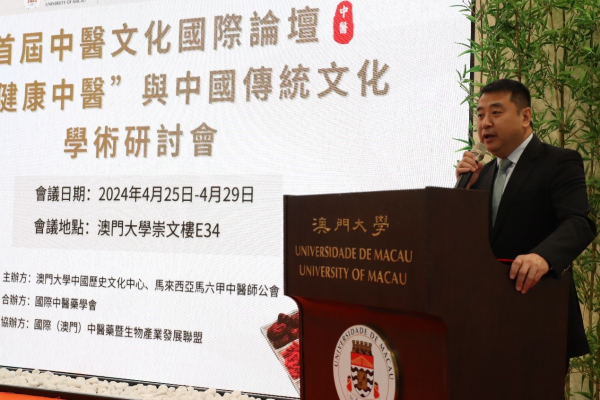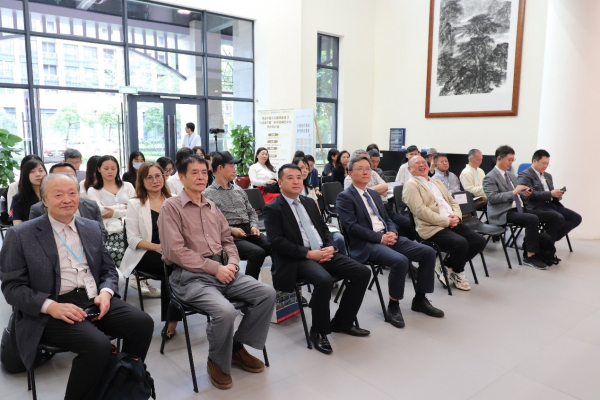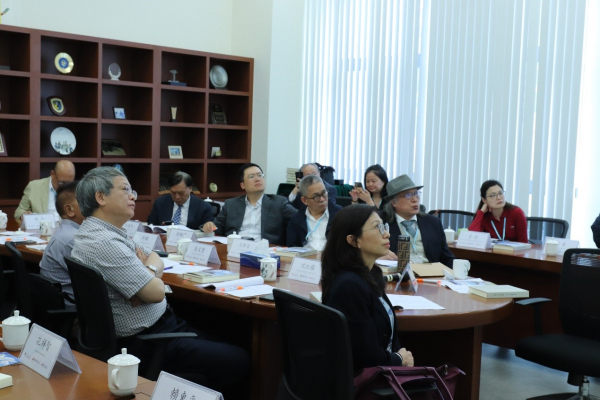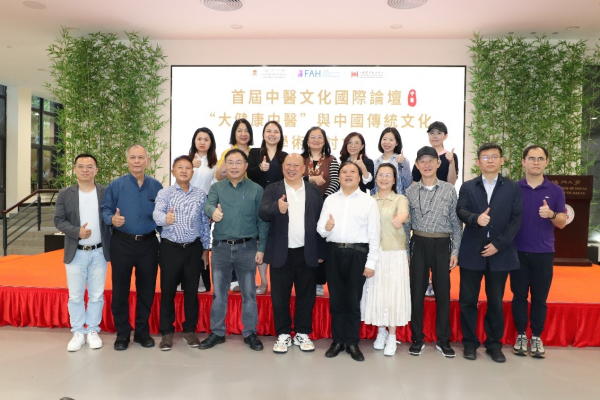“Legacy of Golden Stone” Suzhou-Hong Kong-Macao Seal Carving Joint Exhibition Opening Ceremony Successfully Held

On October 22, 2024, at 10:00 a.m., the opening ceremony of the “Legacy of Golden Stone” Suzhou-Hong Kong-Macao Seal Carving Joint Exhibition was grandly held at the Centre for Chinese History and Culture of the University of Macau, E34 Cultural Building. This event, as one of the series of activities for the “3rd Festival of Chinese Culture” at the University of Macau, was jointly organized by CCHC of the UM, Suzhou Overseas Friendship Association, Changshu Overseas Friendship Association, and Changshu City International Cultural Exchange Promotion Association. The event attracted many artists, scholars, and guests from Suzhou, Macao, and Hong Kong.

The guests attending the event included: Wang Yang, Standing Committee Member of Suzhou Municipal Committee, Minister of United Front Work Department, Secretary-General of the Municipal Committee, and President of Suzhou Overseas Friendship Association, Wan Sucheng, Director of the Propaganda and Culture Department of the Liaison Office of the Central People’s Government in the Macao, Song Yonghua, Rector of the University of Macau, Ho Teng Iat, All-China Women’s Federation Standing Committee Member and President of Macau Association of Fellows Provincials From Jiangsu, Zhejiang and Shanghai, Deng Bing, Deputy Minister of the United Front Work Department of Suzhou Municipal Committee and Vice President of Suzhou Overseas Friendship Association, Sam Chin Peng, Founding President of Macau Jiangsu Soviet Union, Xu Aoao, Retired President of Macau University of Science and Technology, Academician of the International Academy of Astronautics, and Permanent Honorary President of Macau Jiangsu Soviet Union, Fu Zimei, President of the People’s Daily Macau Branch, Liu Gang, President of Xinhua News Agency Macau Branch, Tchu Angela, President of the Macau Suzhou Friendship Association, Wu Wenjin, Deputy Minister of the United Front Work Department of Changshu Municipal Committee and Executive Vice President of Changshu Overseas Friendship Association, and Zhu Shoutong, Director of CCHC.
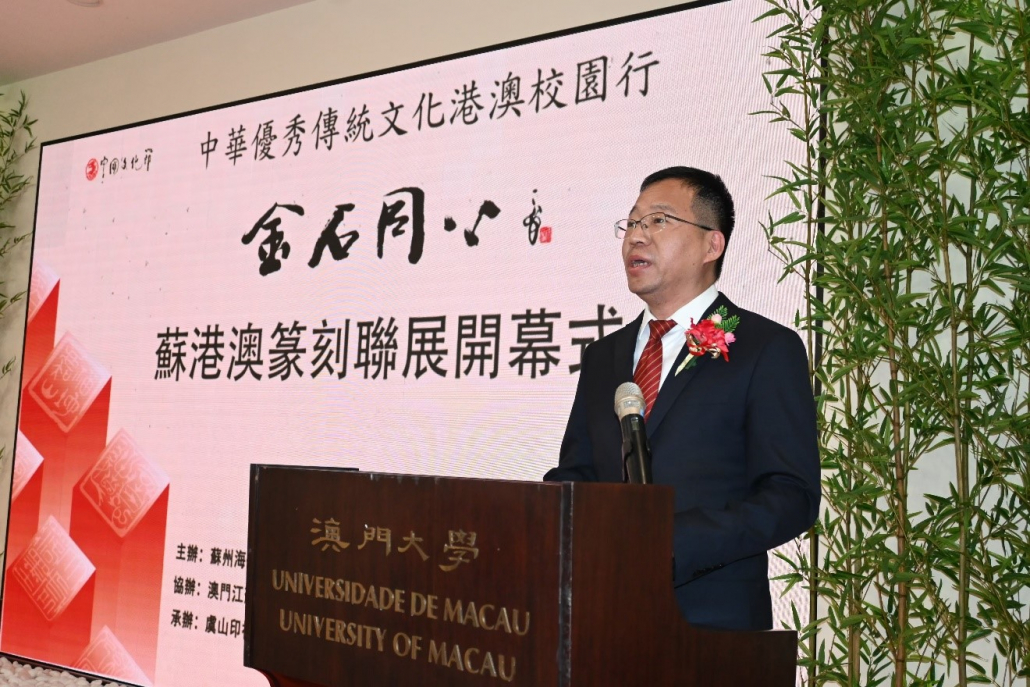
At the ceremony, Wu Wenjin delivered a speech stating that artists from the three regions used handmade knives as brushes and stones as paper, integrating the essence of Chinese culture and the spirit of the times into a small space, not only showcasing the unique charm of seal carving art but also reflecting our firm belief in jointly inheriting and promoting the excellent traditional Chinese culture. In the future, it is hoped that based on a good foundation of exchange and cooperation, we will continue to make good use of the “Excellent Traditional Chinese Culture Hong Kong and Macao Tour” as a platform for exchange, continuously deepen the connotation of activities, and use culture as a link to expand the exchange and cooperation between Changshu and Hong Kong and Macao in the fields of art, science and technology, talent, and industrial projects, further stimulating the strong power of patriotism and love for Hong Kong and Macao.
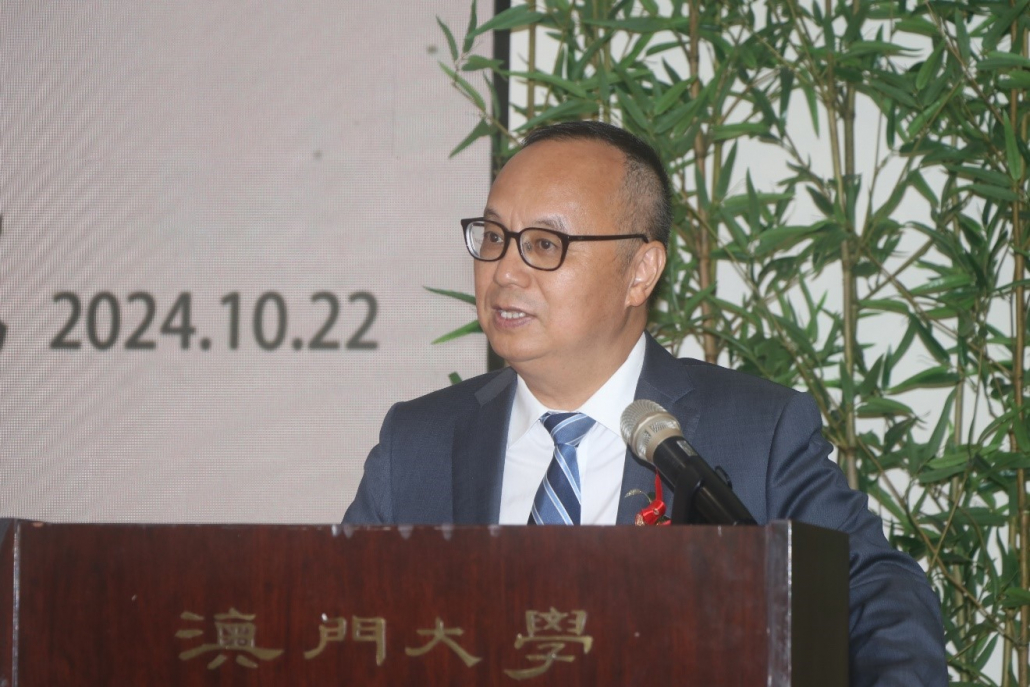
Rector Song reviewed the recent activities held by the UM, especially the “One Country, Two Systems” themed activities to celebrate the 75th anniversary of Macao’s return to the motherland. He emphasized that the University of Macau has always been committed to cultivating more patriotic and Macao-loving talents. Cultural Building, as a landmark building of the University of Macau, symbolizes the university’s emphasis on humanities, traditional culture, and Chinese art. Song Yonghua also highly praised the excellent national culture of Suzhou and Changshu, especially mentioning the Suao Pavilion, which is based on the prototype of Canglang Pavilion, as an important architectural representative of the University of Macau, guided by history and carrying culture.
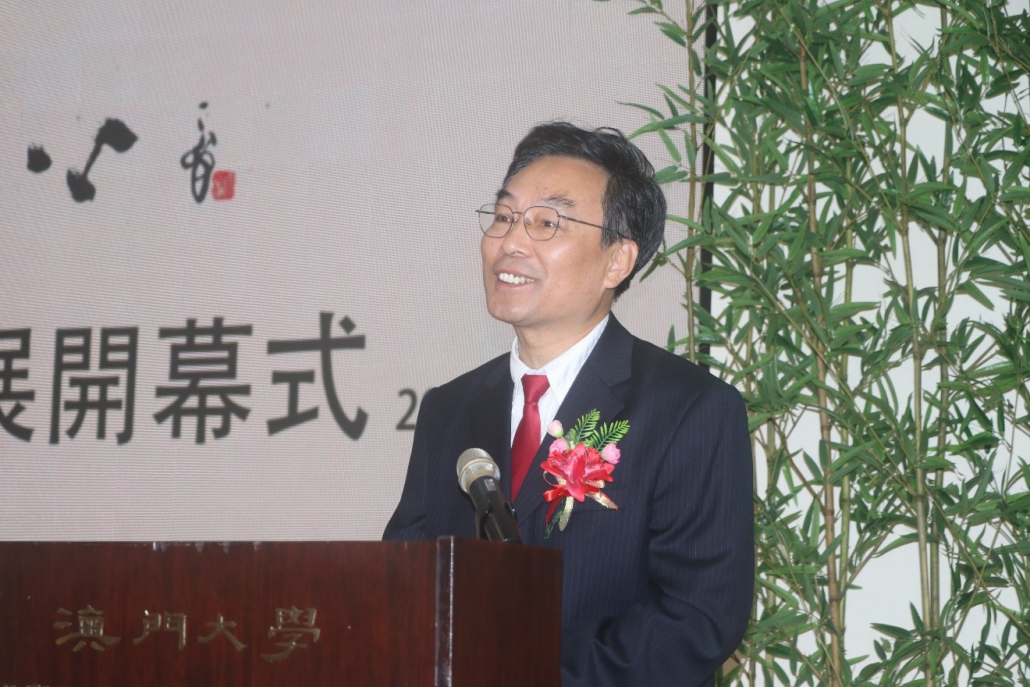
Wu Wei, President of Yushan Seal Society, introduced the history and experience of Yushan Seal Society in detail in his speech, stating that Yushan Seal Society has been committed to promoting the popularization and improvement of seal carving art. He mentioned that Macao has a profound connection with Yushan Seal Society, and this joint exhibition not only showcases the essence of seal carving art from the three regions but also promotes cultural exchange and integration. He also revealed that the joint exhibition displayed more than 110 seal carving works, each of which is a testament to the artists’ efforts and wisdom.
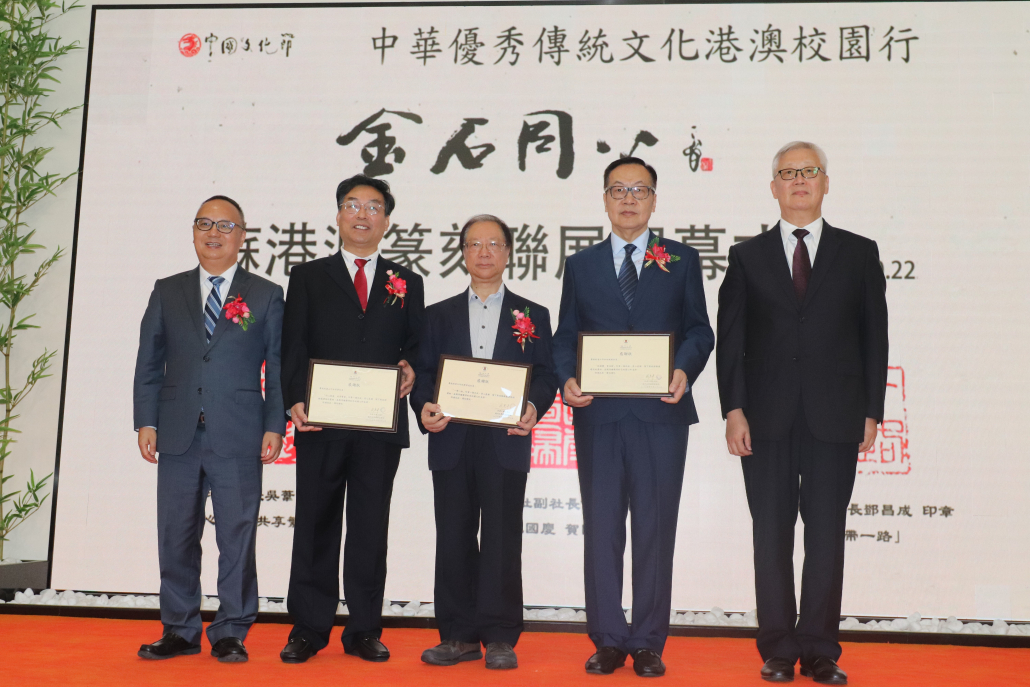
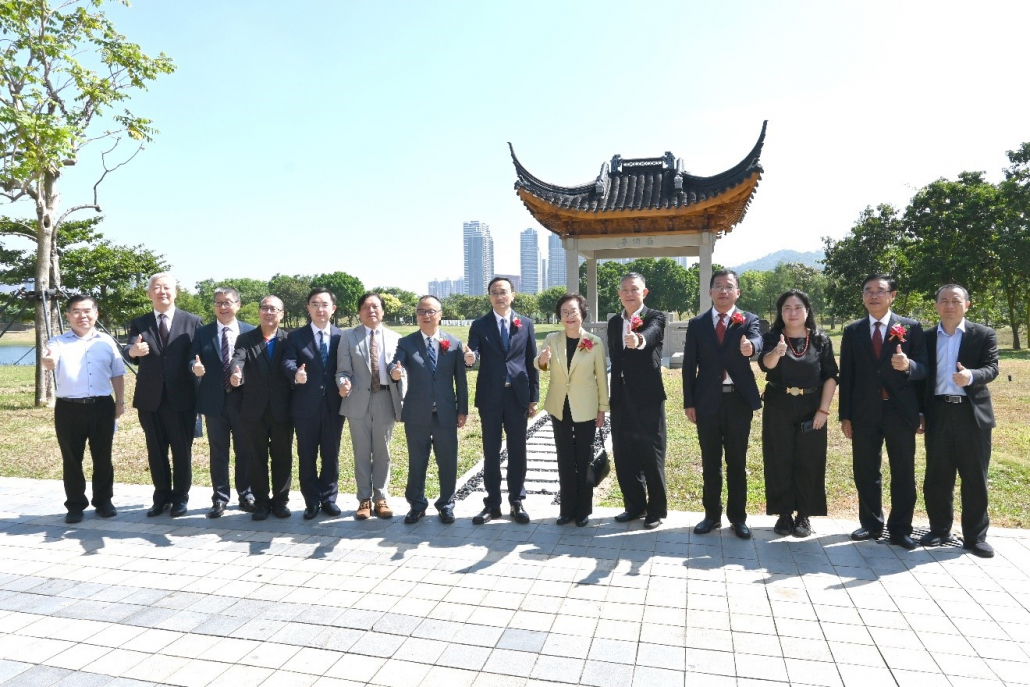
The opening ceremony also included a ceremony to present the original stone seals to the UM, jointly issued by Wu Wei, President of Yushan Seal Society, Ho Pan, Vice President of Hou kong Seal Society, and Tang Changcheng, President of Hong Kong Seal Society. Wu Jianzhong, the University Librarian, accepted on behalf of the university and returned a collection certificate. Subsequently, 14 guests jointly performed the ribbon-cutting ceremony, marking the official opening of the “Legacy of Golden Stone” Suzhou-Hong Kong-Macau Seal Carving Joint Exhibition. After the opening ceremony, the guests visited the exhibition and the Suao Pavilion, and took a group photo there.
The “Legacy of Golden Stone” Suzhou-Hong Kong-Macao Seal Carving Joint Exhibition not only provided a platform for artists from the three regions to showcase their talents and exchange skills but also promoted in-depth cultural exchange and integration, making a positive contribution to the inheritance and development of Chinese culture.

